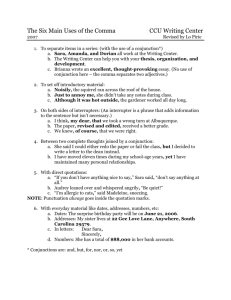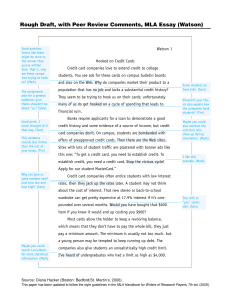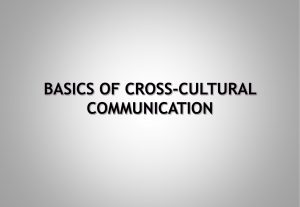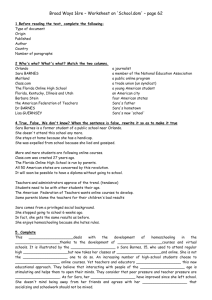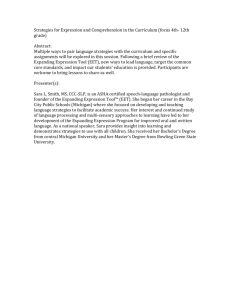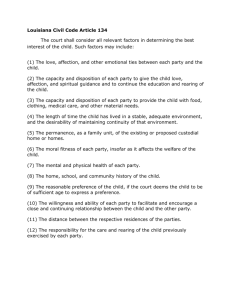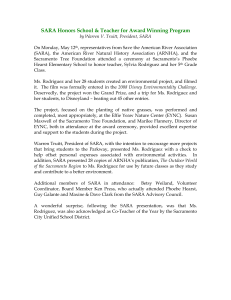Love Talk
advertisement
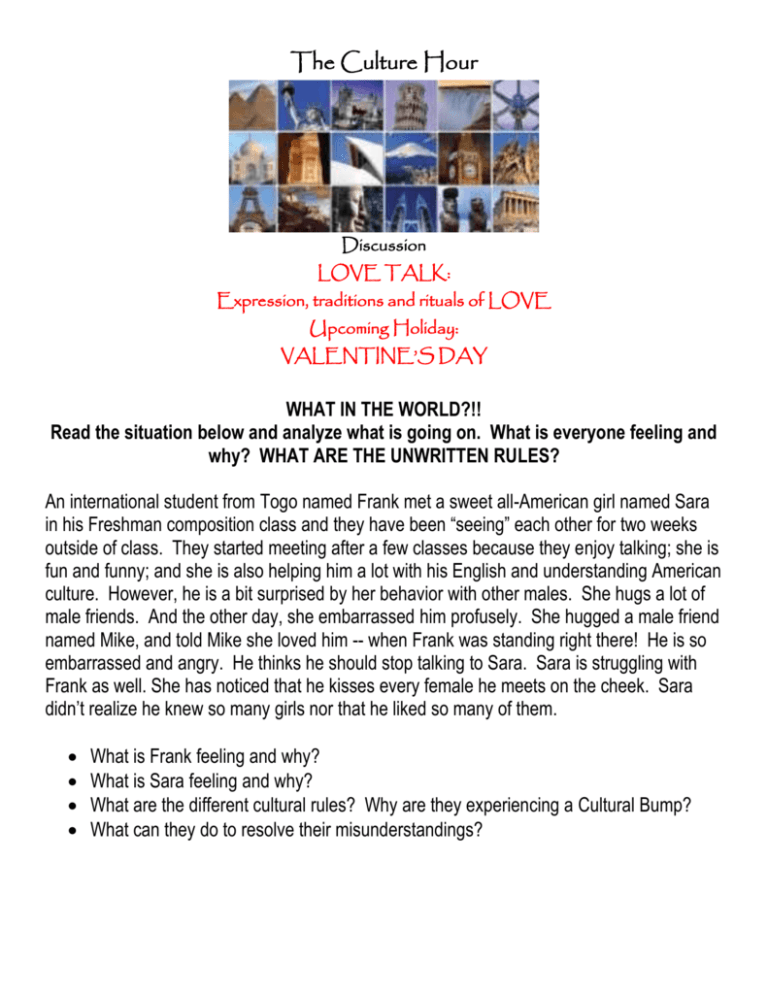
The Culture Hour Discussion LOVE TALK: Expression, traditions and rituals of LOVE Upcoming Holiday: VALENTINE’S DAY WHAT IN THE WORLD?!! Read the situation below and analyze what is going on. What is everyone feeling and why? WHAT ARE THE UNWRITTEN RULES? An international student from Togo named Frank met a sweet all-American girl named Sara in his Freshman composition class and they have been “seeing” each other for two weeks outside of class. They started meeting after a few classes because they enjoy talking; she is fun and funny; and she is also helping him a lot with his English and understanding American culture. However, he is a bit surprised by her behavior with other males. She hugs a lot of male friends. And the other day, she embarrassed him profusely. She hugged a male friend named Mike, and told Mike she loved him -- when Frank was standing right there! He is so embarrassed and angry. He thinks he should stop talking to Sara. Sara is struggling with Frank as well. She has noticed that he kisses every female he meets on the cheek. Sara didn’t realize he knew so many girls nor that he liked so many of them. What is Frank feeling and why? What is Sara feeling and why? What are the different cultural rules? Why are they experiencing a Cultural Bump? What can they do to resolve their misunderstandings? WHAT IN THE WORLD?!? Read the situation below and analyze what is going on. What is everyone feeling and why? WHAT ARE THE UNWRITTEN RULES? An American who teaches English as a Second Language to international students treats every student as she would her own child. Her family calls everyone “sweetie” and “honey”, so she has these speech mannerisms and uses the endearments “sweetie” and “honey” with her students out of habit - just as she would talk to her own child. One of her students drops by her office often just to talk. She knows that he misses home and needs some extra support, so she makes time for him. One time as he is leaving, she says, “Thanks for stopping by sweetie.” And he responds, “I’ll see you tomorrow honey.” She is so surprised and embarrassed. What is teacher feeling and why? What is the student feeling and why? What are the different cultural rules? Why are they experiencing a Cultural Bump? What can they do to resolve their misunderstandings? YOU AND YOUR CULTURE How do you say “I love you” to a husband, wife or boyfriend/girlfriend in your language? o Is there a different expression for babies or children? o Is there a different word or expression for a friend? Male friend? Female friend? o What other words of endearment or affection like honey or sweetie do you have in your culture and when are they used? How do you show your love in public o to your husband, wife or boyfriend/girlfriend? Are you allowed to show your love in public? o Child o Brother or sister o Close friend What type of nonverbal communication do you use to show you love someone? o Touching o Eye contact o Voice o Physical distance What type of nonverbal communication do you use to show your are friends with someone? o Touching o Eye contact o Voice o Physical distance Is there a special day or holiday set aside for Love or couples like Valentine’s Day? What do people do on this day? What is a traditional gift to give to the woman or man that you love? What type of nonverbal communication do you use to show you are interested in dating someone? o Touching o Eye contact o Voice o Physical distance What are some traditional or acceptable dating and courtship practices in your family or culture? In Culture Hour discussions, it has been evident that Americans do not share one homogeneous culture in regard to Love Talk and there is not one "rule" governing displays of affection. We say I love you to everyone from our significant other or partner to our ice cream "in love" is generally reserved for our significant other or partner But some families do not say they love each other -- others say it non-stop Some families hug, some kiss, some hold hands -- others do not In general, Americans show affection in the way that is comfortable for them. And although we may be "uncomfortable" with a couple kissing passionately in public, we don't judge. There is a "Live and let live" or "to each his own" attitude for most people in America as we realize our rules are more personal. That is not so true in many other countries where the closer you are, the less likely you are to show affection or closeness in public. In Saudi Arabia and Micronesia, husbands and wives would never touch or kiss in public. The Chinese students report that they have never heard their parents say "I love you" although they KNOW they are loved. Neither have they heard their parents profess their love to each other. As one student from the Philippines explained, people show their love in their little and big actions. It's in how a mother feeds and cares for her child. The Chinese students added that it is in how a couple respects and treats each other that everyone knows that they love each other. In America we often say that "Actions Speak Louder than Words" so maybe the rest of the world has a good message when it comes to "LOVE TALK." Xoxo ( hugs and kisses), Kimberly
